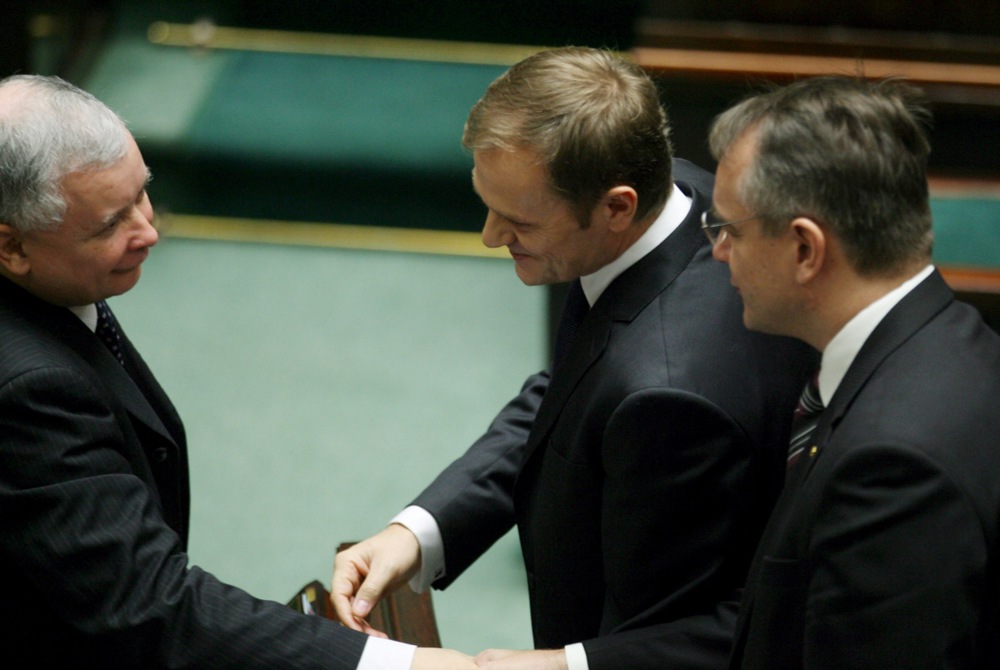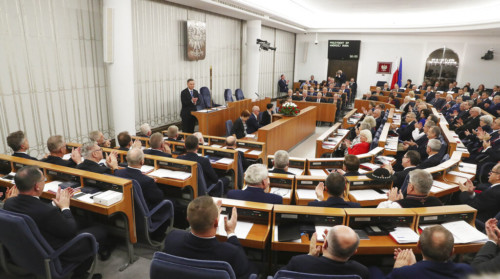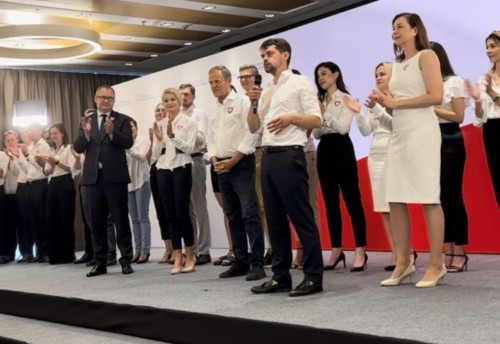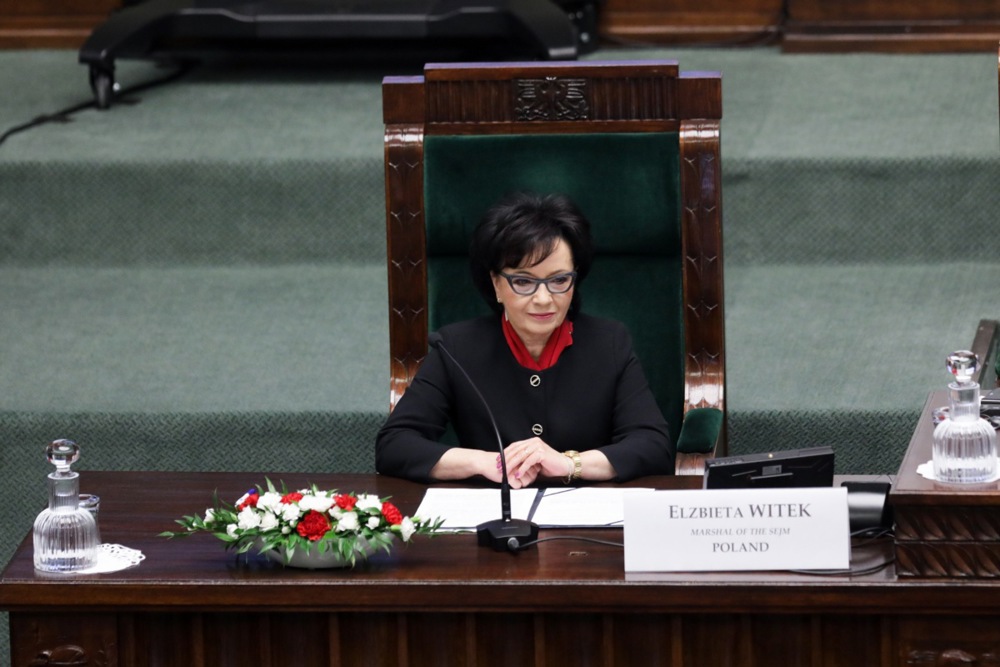Poland’s main opposition party, the PO led by Donald Tusk, has published an election broadcast that contains a deepfake of the voice of Polish Prime Minister Mateusz Morawiecki.
The broadcast centred on the internal politics of the ruling PiS and includes the “voice” of Mateusz Morawiecki that was generated by AI. The piece questions the unity within the ruling party. It contains footage from the prime minister’s speeches in parliament intertwined with texts of emails that were hacked from his account and conveyed by the deepfake voice of Morawiecki.
The film itself does not mention that the voice reading the emails was generated by AI. That information was included in a post several hours after commentators began drawing the PO’s attention to the fact that the use of such a technique was highly controversial.
News portal Gazeta.pl published a protest from the anti-fake media website Demagog. “All material generated by Artificial Intelligence should be clearly marked as such. An additional tweet is not enough,” Demagog said.
The site insists clear labelling of AI-generated material is essential to reduce the risk of spreading misinformation, which is “particularly dangerous for the democratic process, especially in the middle of an election”.
Marcel Kiełtyk, one of the Demagog experts, argued that “the voice of a politician generated by AI in which that politician announces controversial decisions or views in the middle of a crisis-type situation such as a war or a natural disaster is a recipe for chaos”.
Cybersecurity specialist Łukasz Olejnik was scathing about the PO’s broadcast, saying the party was guilty of “shooting itself in the foot”. He added that there was no point demonising such practices as the European Union has allowed them but pointed out that such material will soon have to be clearly marked.
“For now all that can be done is to bring the issue to the attention of the moderators of the relevant service,” he concluded.
The deputy rector of Kozminski University in Warsaw Aleksandra Przegalińska-Sierkowska, who is an AI expert, appealed to political parties to ensure that any material using AI is clearly marked. “Let’s keep to the highest standards in the age of generated AI content” she said.
Poland’s parliamentary elections are scheduled for October 15. All the five party blocks that have the chance of making it into parliament have launched extensive social media campaigns. Free broadcasting by public radio and TV of materials selected by the political groups with equal time limits will be available for all the parties registered at the national level in the latter stages of the election campaign.





